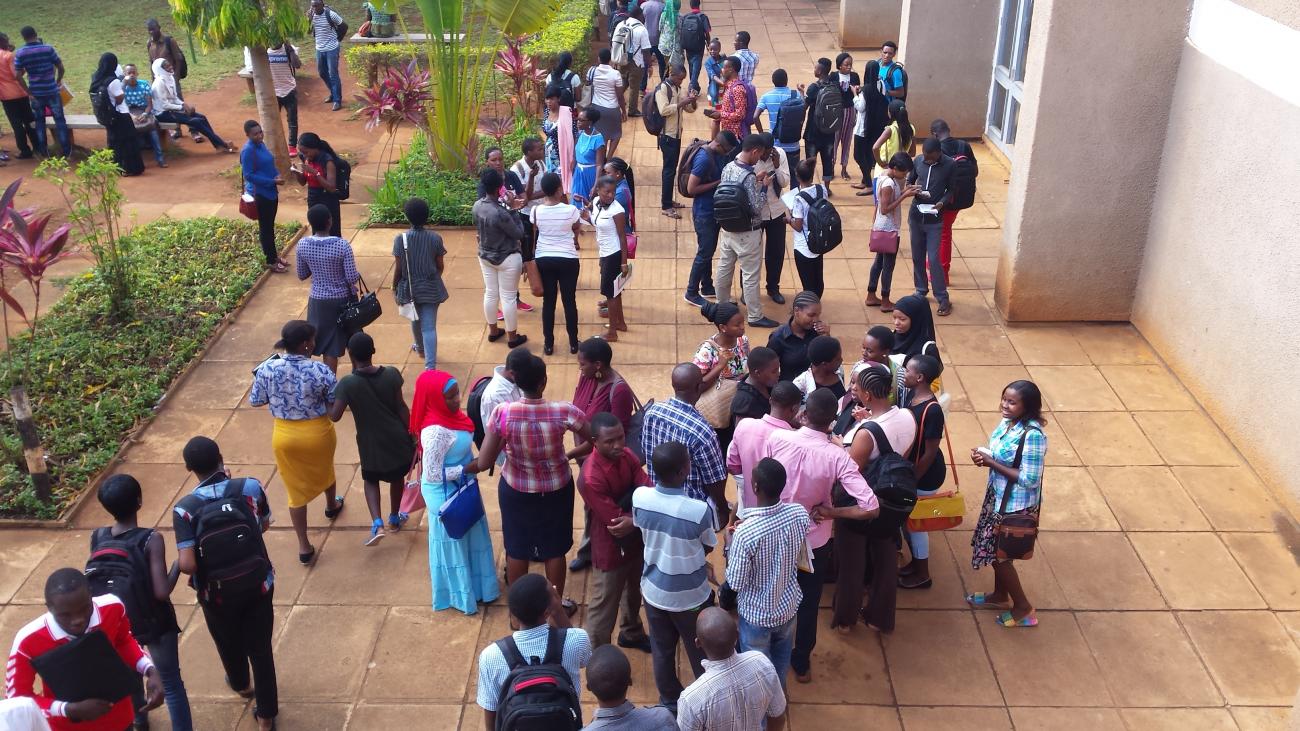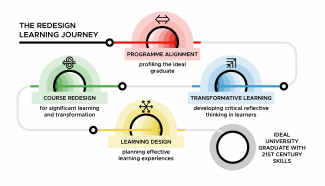
Transforming Employability for Social Change in East Africa (TESCEA)
Transforming Employability for Social Change in East Africa (TESCEA) is helping young people to use their skills and ideas to tackle social and economic problems. TESCEA supports universities, industries, communities and government to work together to create an improved learning experience for students – both women and men.
With partners in Tanzania, Uganda and Kenya, TESCEA's first phase developed a scalable pedagogical model to help universities produce graduates with the critical thinking and problem-solving skills they need to solve real-world problems. We are working to scale TESCEA’s approaches to further universities in East Africa and beyond. Read more about TESCEA's results and learning.
The challenge
Many graduates in East Africa are ill-prepared to address the challenges they encounter in the workplace or to leverage their skills and ideas to meet social needs. One of the key factors contributing to this is the lack of focus on critical thinking and problem solving within university teaching and learning. Students need to learn “how to think”, instead of “what to think”. While universities recognise the need to improve the quality and relevance of curricula, to rethink pedagogies, and to build stronger connections with communities and industries, the challenge is to move beyond islands of good teaching and to bring about change at scale.
Our impact
In TESCEA’s first phase (2018-2021), a partnership between the universities of Dodoma, Mzumbe, Uganda Martyrs and Gulu, Ashoka East Africa, the Association for Faculty Enrichment in Learning and Teaching, and INASP, we:
- Improved the learning experience for 3,800 students
- Supported 565 lecturers to rethink their teaching practice to become facilitators of transformative and student-centred learning and embed gender responsive approaches into the teaching and learning process
- Trained 29 multipliers who can train and mentor their colleagues
- Strengthened connections between the partner universities, local employers and communities by fostering relationships to enable the design of relevant curricula
The first phase of the TESCEA partnership has laid the foundations – through knowledge, networks, skills and tools – to enable universities across East Africa to produce graduates who have the skills and competencies that local employers and communities need to solve real-world problems.
Our evaluation of the 2018-2021 project found that TESCEA had facilitated tangible changes in teaching practices, student learning and institutional processes, systems and cultures:
- 94% of lecturers believed that TESCEA’s approaches were more effective, and enabled them to develop more relevant courses and more learner-centred teaching and assessment
- Lecturers’ use of critical thinking and problem-solving techniques had increased by 43 percentage points, use of active learning strategies (such as role plays, fishbowl debates and peer teaching) by 37 percentage points and the use of complex problem-based and team-based learning strategies by 15 percentage points
- 87% of students rated their learning experience as positive
- The gender-responsive design of TESCEA contributed to positive shifts in students’ behaviours and attitudes with increased levels of interaction and awareness raising in classroom settings
- 94% of senior managers felt that the changes were very important to their institution
- 39 policies and process guidelines were revised across the four partner universities
We are working to scale TESCEA’s approaches to further universities in East Africa and beyond.
Get in touch if you share our ambitions for African higher education – we are actively seeking new partnerships and new investments: contact Jon Harle
Transforming Higher Education for Social Change - a model from East Africa
The first phase of TESCEA was funded by the UK’s Foreign, Commonwealth & Development Office as part of the SPHEIR (Strategic Partnerships for Higher Education Innovation and Reform) programme to support higher education transformation in focus countries in Sub-Saharan Africa, Asia and the Middle East. SPHEIR was a competitive grant scheme designed to catalyse innovative ‘partnerships’ in low-income countries to improve the performance, governance and influence of higher education systems and institutions. SPHEIR partnerships sought to transform the quality, relevance, access and affordability of higher education to achieve sustainable change in higher education systems.




